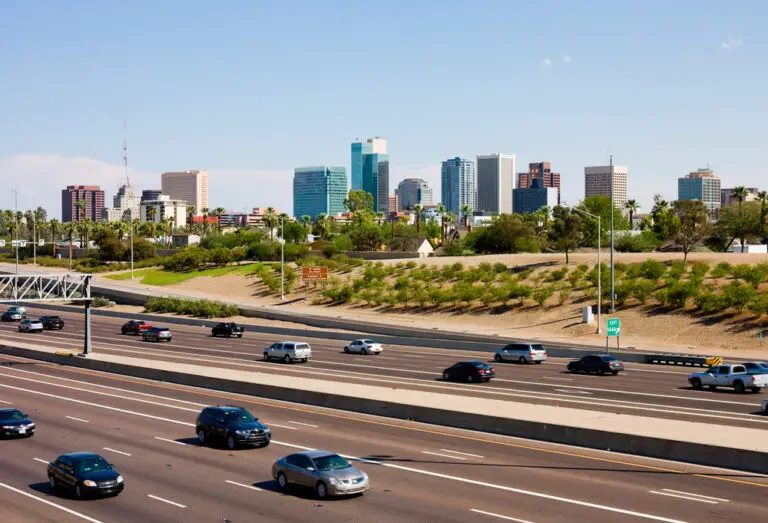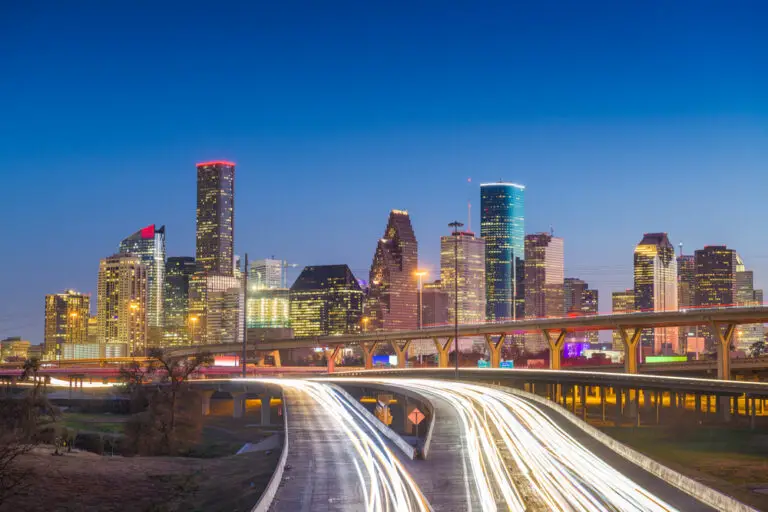New Hampshire Car Seat Laws 2024 (Rear, Forward & Booster)

Under the New Hampshire car seat laws, all children under 7 years old must be restrained in a federally-approved child restraint system. This is not required if the child is at least 57 inches (4’9”) tall. If you violate the New Hampshire state law, you will be penalized.
Disclaimer: The content in this article does not constitute legal advice. It is solely for the purpose of providing information. The law is amended from time to time and the information in this article may not always be up to date. We recommend you check the original source of the law.
- NH Rear-Facing Seat Law
- NH Forward-Facing Seat Law
- NH Booster Seat Law
- NH Child Front Seat Law
- NH Child Seat Belt Law
- NH Taxi Child Seat Law
- NH Ridesharing Seat Law
- NH Child Seat Repl. Law
- Leaving Child in Car in NH
- Choosing a Child Seat in NH
- Seat Installation Help in NH
New Hampshire Car Seat Laws
New Hampshire Rear-Facing Car Seat Law
There is no specific rear-facing car seat law in New Hampshire but all children younger than 7 or those shorter than 57 inches must be placed in an appropriate child restraint. (1)
This exempts children traveling in a school bus, taxi, or a parade vehicle, a vehicle manufactured before 1968, or if they have an individualized education program statement explaining why they cannot be placed in a child restraint system.
Without a clear New Hampshire rear-facing child seat law, it is best to follow the guidelines of the American Academy of Pediatrics (AAP). As per these, an infant must be placed in a rear-facing car seat.
The rear-facing car seat age in New Hampshire is absent. But children should ride rear-facing at least till the age of 2 years.
The penalty for disobeying the law is $50 for the first offense and $100 for a second and subsequent offense. (1)
Age: Younger than 7 years (Newborn to 2 years recommended)
Height: Shorter than 57”
Penalty: $50 for the first time, $100 for a repeat violation.
New Hampshire Forward-Facing Car Seat Law
There is no forward-facing car seat law in New Hampshire. However, the National Highway Traffic Safety Administration (NHTSA) recommends that children must ride forward-facing after they have outgrown the height or weight limits of their rear-facing seats.
Under the New Hampshire child seat laws, children younger than 7 years or shorter than 57 inches must be placed in a child restraint that meets federal safety standards unless they are exempt. (1) For young children aged 2 to 4 years, this means a forward-facing car seat with a harness and tether.
The legally mandated forward-facing car seat age in New Hampshire is absent. But it is best if children ride forward-facing till they reach the upper limits of the seat manufacturer.
The penalty for violating the New Hampshire forward-facing child seat law is $50 for the first offense and $100 for a subsequent offense.
Age: Younger than 7 years (2 to 4 years recommended)
Height: Shorter than 57”
Penalty: $50 for the first time, $100 for a repeat violation.
New Hampshire Booster Seat Law
There is no express child booster seat law in New Hampshire. But the general car seat law states that all children younger than 7 years or shorter than 57 inches must be placed in a child passenger safety system. (1)
Such a system includes a high-back and backless booster seat. Children can start using them once they surpass the maximum height or weight specifications of their forward-facing seats.
The booster seat raises the child so that the seat belt fits them properly. Though booster seat age in New Hampshire is not mentioned, children should ride in them till they are at least 4’9” tall and can safely wear the seat belt without any support.
A violation of the New Hampshire booster seat requirements will have the driver fined $50 for the first offense and $100 for a subsequent offense.
Age: Younger than 7 years
Height: Shorter than 57”
Penalty: $50 for the first time, $100 for a repeat violation.
New Hampshire Child Front Seat Law
The child front seat law in New Hampshire is absent. As per federal safety standards, children are safer in the backseat. (2)
This is reiterated by the AAP, which recommends that children should ride in the backseat till they are 13 years old. So even though the front seat age in New Hampshire is unclear, it is best to follow AAP recommendations.
If it is absolutely necessary, a child can ride in the front seat in a forward-facing car seat. The car seat must be appropriate for the child’s height and weight.
The vehicle seat must be pushed as far back from the airbag as possible. If you are traveling with a child in a rear-facing seat, the front seat airbag must be deactivated.
You must follow these requirements to ensure the complete safety of your child in the front seat.
New Hampshire Child Seat Belt Law
According to the child seat belt law in New Hampshire, children older than 7 years or at least 57” tall (whichever is reached earlier) must wear a seatbelt while traveling in a vehicle. (1) The seat belt must be properly adjusted and fastened.
There are no exceptions to the seat belt rules in New Hampshire. All passengers less than 18 years of age have to compulsorily wear a seat belt, whether they are in the backseat or the front seat. Those who cannot wear an adult safety belt properly must use a booster seat as per their requirements.
Not wearing a seat belt under New Hampshire children’s seat belt law carries a penalty. For the first violation, there is a fine of $50. Second and subsequent violations are fined $100.
Age: 7 to 17 years
Height: 57”
Penalty: $50 for the first time, $100 for a repeat violation.
New Hampshire Taxi Child Seat Law
According to the taxi child seat law in New Hampshire, taxis are not required to have a child passenger safety system in place. They fall under the exception of vehicles used regularly for hire and are thus exempt. (1)
The taxi driver is not responsible for providing a taxi child seat in New Hampshire. But as parents and caregivers, it is best if you arrange an appropriate car seat before traveling with your child in a taxi.
Depending on the child’s age, you can select a rear-facing, forward-facing, or a booster car seat. These car seats will provide adequate protection to your child.
When installing the car seat in a taxi, it is your responsibility as a caregiver to ensure that it is securely fixed. You can refer to the car seat manual for proper installation.
New Hampshire Ridesharing Child Seat Law
The ridesharing child seat law in New Hampshire is unclear. Under the New Hampshire car seat regulations, all children younger than 7 years or shorter than 57” are to be placed in an appropriate car seat. (1) They are exempted under certain special-education conditions.
It is the driver’s responsibility to ensure that the vehicle is equipped with a proper child restraint system. But there is no mention of ridesharing services such as Uber or Lyft. The best option, in this case, is for either the driver or the parents/caregivers to provide a child seat.
Infants should be placed in a rear-facing car seat. Young children up to 4 years old should ride in a forward-facing car seat. From 4 through 7 years, they should ride in a booster seat till the safety belt fits properly across their lap and shoulders.
New Hampshire Child Seat Replacement Law
There is no particular child seat replacement law in New Hampshire. However, a car seat should be replaced after it is involved in an accident or has expired.
The NHTSA recommends child seat replacement after an accident, especially after a moderate or severe crash. In case of a low-impact accident, there is no urgent need to replace the child safety seat.
A low impact crash is where no passenger is injured, the door nearest to the car seat is not damaged and the seat itself shows no visible damage.
Apart from replacing the seat after an accident in New Hampshire, you must also replace it after it has expired. It must not be used beyond the period stated by the manufacturer. If the seat has been recalled, you should replace it immediately.
Leaving Child in The Car in New Hampshire
There is no provision in law on leaving a child in a vehicle in New Hampshire. However, leaving a child unattended in a vehicle is extremely dangerous. The most common danger is heat stroke.
The temperature inside the vehicle can rise rapidly. Since children’s bodies heat up faster than adults, they are at great risk of suffering a heat stroke. There are other dangers too. The child can get kidnapped, set the car in motion, get strangled by seat belts or power windows or have some other in-car accident.
Even though leaving a child in the car in New Hampshire is not technically illegal under car seat laws, it may be covered under ‘endangering welfare of the child.’ Thus, never leave a child alone in a vehicle even for a few minutes.
Choosing a Child Car Seat in New Hampshire
The car seat laws in New Hampshire are broad. This allows you to choose the best-suited car seat for your child. To do so, you should follow the NHTSA recommendations.
From the time your child is born till they turn at least 2 years old, a rear-facing car seat is the best car seat to use in New Hampshire. They can then move to a forward-facing seat.
After they outgrow these, they should use booster seats. A high-back or backless seat is the best booster seat to use in New Hampshire.
Whichever car seat you choose, it must be according to the child seat requirements in New Hampshire.
Car Seat Installation Help in New Hampshire
Installing a car seat can be a tedious task. The seat must be secured perfectly to ensure the safety of your child.
To help you with car seat installation, New Hampshire has different stations with certified Child Passenger Safety (CPS) technicians.
You can get your car seat checked or installed and also learn more about child passenger safety. Some of the stations where you can get assistance with car seat installation are:
- Milford Fire Department
- Durham Fire Department
- Salem Fire Department
- Hampton Fire & Rescue
- Bedford Fire Department
- Hollis Fire Department/ Hollis Police Department
You can find the nearest station on the NHTSA website.
New Hampshire Car Seat Safety Resources
For more information on child passenger safety seats in New Hampshire, you can refer to the following:
- Seat Smart New Hampshire: Coordinated through the Children’s Hospital at Dartmouth, it is modeled after the Vermont Child Passenger Safety Program. It provides valuable information to caregivers about child passenger safety.
- Safe Kids New Hampshire: It is led by Mary Hitchcock Memorial Hospital and Dartmouth-Hitchcock Clinic. It conducts car seat checkups and safety workshops aimed at child safety.
- Children’s Hospital at Dartmouth-Hitchcock (CHaD): New Hampshire’s only children’s hospital, it has information on car seat laws, inspections and installations, and training.
- New Hampshire Law Library
- Traffic Safety 4 NH
FAQ
How long should a child ride in a rear-facing car seat in New Hampshire?
The law does not expressly state an age. But it is recommended that a child ride in a rear-facing car seat till the age of 2 years.
Can you put a rear-facing car seat in the front seat in New Hampshire?
The law is silent on this. However, it is best to put a rear-facing car seat in the back. If you do put it in front, the front seat airbag must be deactivated.
Can you put a rear-facing car seat in the middle rear seat in New Hampshire?
You can put a rear-facing car seat in the middle rear seat but it must fit properly. Check the car seat as well as your vehicle’s manuals.
When can a baby face forward in a car seat in New Hampshire?
There is no specific requirement. But a child can face forward after they have outgrown their rear-facing seat. This typically happens around 2 years of age.
How old for a booster seat in New Hampshire?
There is no specific age mentioned in the law. But children should ride in a booster seat once they outgrow their forward-facing seat according to its manufacturing limits.
When to use a backless booster seat in New Hampshire?
You can use a backless booster seat if your vehicle seat has a headrest and the child’s ears are not higher than the seat back.
When can a child sit in the front seat with a booster in New Hampshire?
Children should ideally ride in the backseat. But if it is unavoidable, they can ride in the front seat with a booster only if the front airbag is deactivated.
When can a child stop using a booster seat in New Hampshire?
A child can stop using a booster seat when they turn 7 years old or reach 57” in height, whichever occurs first. They can then start using the seatbelt.
When can a child sit in the front seat in New Hampshire?
Children are safer in the backseat of the vehicle. But they can sit in the front seat with its airbag deactivated if it is absolutely necessary.
When to switch from 5 point harness to a seat belt in New Hampshire?
When the child outgrows the height and weight limits of the 5-point harness, they can switch to wearing a seat belt in a booster seat.
When can a child use a regular seat belt in New Hampshire?
Under the law, a child can start using a regular seat belt once they are 7 years old or stand at least 57” tall (regardless of age).
Do you need a car seat in a taxi in New Hampshire?
Taxis are not required to have a car seat. However, it is recommended that you carry an appropriate car seat for maximum protection of your child.
Do you need a car seat in a Uber in New Hampshire?
The New Hampshire law is silent on this issue. But either the caregiver or the driver should provide a federally approved and appropriate car seat.
Do you need a car seat in a Lyft in New Hampshire?
The law is not clear on this issue. But either the caregiver or the driver should provide an appropriate car seat to ensure the child’s safety.

Rishima Rawat
Rishima Rawat is a lawyer and legal writer with over six years of writing and legal experience. She earned her LLB degree from the West Bengal National University of Juridical Sciences, Kolkata. With a passion for child safety, she’s written extensively about the U.S. car seat laws in ParentingMode. She collaborates with businesses and law firms globally, enhancing their online content. Her insights are also published in legal journals like RGNUL, NLIU, and RMLNLU Law Review. Committed to the cause of education, she has volunteered with IDIA, which helps underprivileged children in India to access legal education. She has also worked with Enhelion Knowledge Ventures, a leading legal ed-tech platform in India that provides students with affordable courses in law. Fluent in English and Hindi with elementary proficiency in Spanish, Rishima combines her legal expertise with a dedication to child safety.






